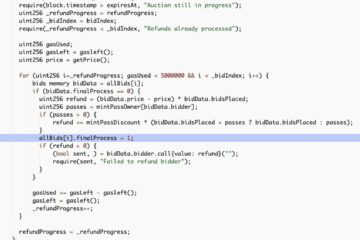Creator economy tokens

Tokens have come to stay. Most people are looking into DeFi but there are other use cases that are as disruptive or more. I’m talking about creator economy tokens. Tokens that somehow represent creators or allow them to earn from their creations maintaining a connection with its audience.
The creator economy is growing and people are finding new ways to financially support creators and to get a stake in them. Let’s see some approaches.
Selling NFTs
Why would a creator sell NFTs? For different reasons:
- To accept on-chain donation.
- To share ownership with its creations.
- To crowdfund a piece.
- To let its fans signal what are they more interested in.
- To form a token-based community.
- To track supporters.
There are multiple ways of selling NFTs that will result in a different experience for their supporters.
Auctions
These are just minting a piece of the creator and selling in an auction. Optionally, the creator could add a fee for each selling of the token.
Copies or fragments
Instead of selling a unique piece once, you can sell copies of it as NFTs, i.e. 100 copies of a piece of art. They are usually a fixed price and they are also a crowdfunding mechanism. Another option is selling tokens that represent a future work so the community can signal its interest similarly to Kickstarter.
Editions
Editions are a method invented by Mirror that creates tiers of tokens based on how much you contribute to the project. For now, they’re only available on Mirror but creators can always create different NFTs with different prices and meanings on marketplaces.
All of these approaches are available in most NFT platforms such as Zora, Foundation, Mirror, Opensea, Rarible, Superrare…
Selling ERC20 tokens
A similar approach to fragments but instead of getting NFTs you get ERC20 tokens proportional to your contribution. Depending on the terms, you would have some rights according to the tokens that you hold, access to a community, voting rights or they may just act as a receipt of your donation. Mirror support this kind of funding through their crowdfund block. They can also be interpreted as creator tokens.
Creator tokens
These are very innovative. Each creator has an ERC20 token that is minted following some rules (bonding curves, etc) based on the interest people have in them. This way, the creator becomes an asset that can grow or lose value based on their credibility, value perceived by their fans, popularity, etc.
Depending on the platform you could earn interest on the deposited coins (Idearmarket) or you get a fee in your coin from every purchase (Bitclout). Coreto.io tries to create an on-chain reputation system for influencers and investors. Rally.io and Props.xyz tries to make it easier to deploy coins to empower creator communities and fans.
The problem is the usual in crypto, you never know which protocol will win. So, if you hold creator coins in one protocol it could be that in the future those coins are more or less worthless because people finally is adopting another one.
Conclusions
Creators that join the crypto space have new ways of monetizing their work and connecting with their fans. Sharing ownership and verified on-chain contributions give creators a new level of engagement. There are many protocols and platforms being developed to power the creator economy and we expect more to come.


